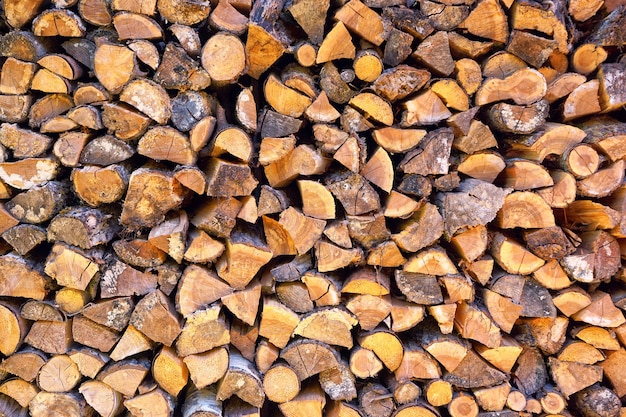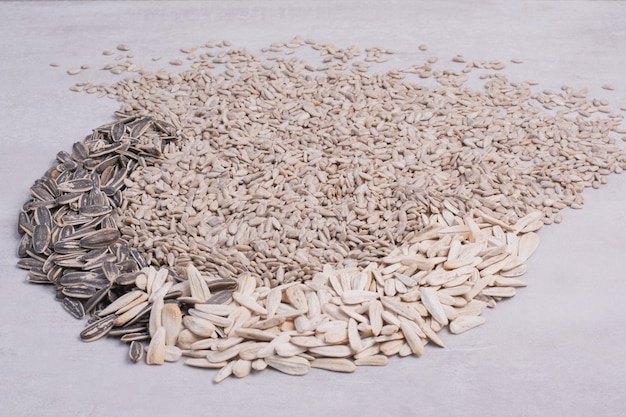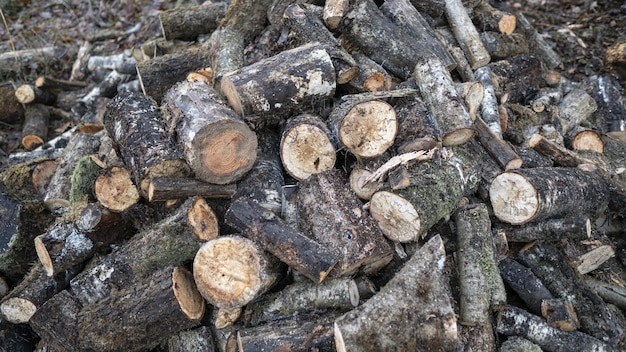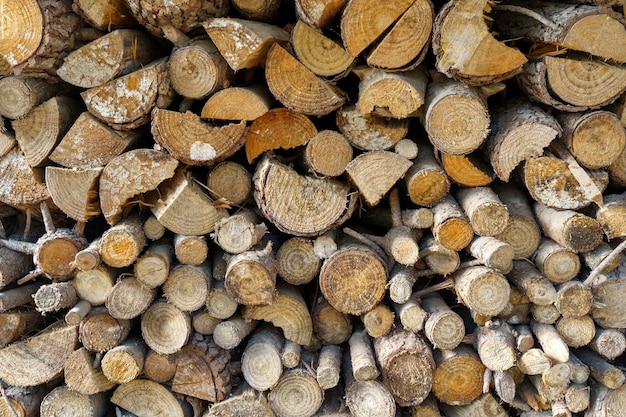Are wood pellets better than charcoal?
In recent years, there has been a growing trend towards using alternative fuel sources for cooking and grilling. Two popular options that have gained significant attention are wood pellets and charcoal. Both of these fuels have their own unique advantages and characteristics, but the question remains: are wood pellets better than charcoal?
The Basics of Wood Pellets and Charcoal
Wood pellets are small, cylindrical pellets made from compressed sawdust or wood shavings. They are typically used in pellet grills or smokers and provide a consistent and controlled source of heat. On the other hand, charcoal is made from carbonized wood and is commonly used in traditional grills and barbecues.
When it comes to comparing wood pellets and charcoal, several factors need to be considered, including flavor, convenience, cost, and environmental impact.
Flavor and Cooking Performance
One of the key differences between wood pellets and charcoal is the flavor they impart on the food being cooked. Wood pellets come in various flavors, such as hickory, mesquite, or apple, which can add a distinct smoky taste to the dishes. This is particularly appealing to those who enjoy experimenting with different flavors and enhancing the taste of their grilled food.
Charcoal, on the other hand, provides a more traditional charcoal flavor that many people associate with outdoor grilling. It produces high heat and creates a wonderful sear on meats, giving them a delicious smoky crust.
“Wood pellets offer a wider range of flavors, allowing you to customize the taste of your dishes, while charcoal provides that classic, beloved flavor that many outdoor cooking enthusiasts enjoy.”
Convenience and Ease of Use
When it comes to convenience, there is a clear distinction between wood pellets and charcoal. Wood pellets are designed to be used with pellet grills, which offer automated temperature controls and make it easier to maintain a consistent cooking temperature. They require minimal effort and provide a hassle-free cooking experience.
Charcoal, on the other hand, requires more effort to light and control the temperature. It may take longer to reach the desired cooking temperature, and maintaining consistent heat can be challenging. However, many charcoal enthusiasts appreciate the hands-on approach and enjoy the process of building and tending to the fire.
Cost Considerations
Cost is an important factor to consider when choosing between wood pellets and charcoal for grilling. Wood pellets tend to be more expensive than traditional charcoal, as they are a processed product. The price of wood pellets can vary depending on the brand and flavor options.
On the other hand, charcoal is generally more affordable and readily available. It is often sold in large bags at lower prices, making it a cost-effective option for those who grill frequently or in larger quantities.
Environmental Impact
Wood pellets are often considered a more environmentally friendly choice compared to charcoal. Wood pellets are typically made from sawdust or wood waste, which would otherwise be discarded. Therefore, using wood pellets minimizes waste and promotes sustainability.
Charcoal production, however, involves cutting down trees and burning them in a controlled environment to create the charcoal briquettes. This process contributes to deforestation and carbon emissions. While some brands offer sustainably sourced charcoal, it is important to consider the environmental impact when choosing charcoal as a fuel source.
Can I use wood pellets instead of charcoal?
Wood pellets have become increasingly popular as an alternative fuel for grilling and smoking in recent years. While charcoal has long been the go-to choice for barbecuing in the UK, many people are wondering if wood pellets can be a viable substitute. Let’s explore the pros and cons of using wood pellets instead of charcoal.
Advantages of Wood Pellets
Eco-Friendly: Wood pellets are made from compressed sawdust and other wood waste, making them a more sustainable option compared to charcoal, which is typically produced from non-renewable sources.
Consistent Heat: Wood pellets provide a consistent and even heat, allowing for precise control over temperature during cooking. This is particularly beneficial for grilling or smoking dishes that require low and slow cooking.
Flavorful Smoke: Different types of wood pellets yield distinct flavors when burned, adding a unique smoky taste to your grilled or smoked food. Depending on the wood variety used, you can achieve a range of flavors, such as hickory, mesquite, or applewood.
Disadvantages of Wood Pellets
Cost: Wood pellets can be more expensive than charcoal, especially if you grill or smoke frequently. However, the cost may vary depending on the brand and quality of the pellets.
Availability: While charcoal is widely available in supermarkets, finding wood pellets may require a bit more effort. However, with the increasing popularity of pellet grills, more specialty stores are now stocking wood pellets.
“Wood pellets provide a consistent and even heat, allowing for precise control over temperature during cooking.”
Using Wood Pellets with Charcoal
If you’re still unsure about completely replacing charcoal with wood pellets, you can also consider using a combination of both. This method involves starting your fire with charcoal and adding wood pellets for flavor and additional smoke. It allows you to enjoy the benefits of both fuel types and experiment with different flavor profiles.
Is Pellet Grill Safer Than Charcoal?
When it comes to outdoor cooking, many people debate between using a pellet grill or a traditional charcoal grill. While both options have their merits, safety is an important consideration to keep in mind. Let’s take a closer look at whether a pellet grill is safer than a charcoal grill.
1. Fire Safety
One of the main concerns when using any type of grill is fire safety. Both pellet grills and charcoal grills pose a fire risk if not used properly. However, pellet grills tend to be safer in this regard. Unlike charcoal grills, pellet grills have an automatic ignition system that eliminates the need for lighter fluid or matches. This reduces the likelihood of accidental fires caused by improper ignition methods.
2. Emission of Harmful Chemicals
Charcoal grills produce more smoke and release higher levels of harmful chemicals such as carbon monoxide and polycyclic aromatic hydrocarbons (PAHs). These substances can be hazardous to our health and the environment. On the other hand, pellet grills use natural wood pellets, which produce less smoke and fewer harmful emissions.
3. Temperature Control
Pellet grills offer better temperature control compared to charcoal grills. They have digital thermostats that allow you to set and maintain a specific temperature throughout the cooking process. This not only ensures food safety but also reduces the risk of flare-ups and accidental burns caused by uncontrolled high heat.
Conclusion:
While both pellet grills and charcoal grills can be used safely with proper precautions, pellet grills have certain advantages in terms of fire safety, emission of harmful chemicals, and temperature control. If safety is your primary concern, a pellet grill may be the better option for you.
Remember, regardless of the type of grill you choose, always follow the manufacturer’s instructions, keep a fire extinguisher nearby, and practice safe grilling techniques to ensure a enjoyable and secure grilling experience.
What Burns Hotter: Charcoal or Wood Pellets?
When it comes to grilling or barbecuing, the choice of fuel can greatly impact the flavor and cooking temperature of your food. In the UK, two popular options are charcoal and wood pellets. But which burns hotter? Let’s dive in and find out.
Charcoal:
Charcoal is a traditional fuel and has been used for cooking for centuries. It is made by heating wood in the absence of oxygen, which removes moisture, volatile gases, and leaves behind carbon. This process creates a highly concentrated fuel source that burns at high temperatures.
**Charcoal burns hotter than wood pellets**, reaching temperatures of around 700 to 900 degrees Fahrenheit (370 to 480 degrees Celsius). It provides a quick and intense heat, perfect for searing steaks or achieving a crispy exterior on grilled foods.
Wood Pellets:
Wood pellets, on the other hand, are made from compressed sawdust and wood shavings. They are often used in pellet grills or smokers, offering a convenient way to infuse a smoky flavor into your dishes.
While wood pellets burn at slightly lower temperatures than charcoal, they still provide sufficient heat for grilling purposes. They typically reach temperatures of 500 to 700 degrees Fahrenheit (260 to 370 degrees Celsius).
“Although charcoal burns hotter than wood pellets, it’s important to note that the cooking technique and grill design also play a significant role in temperature control and overall grilling experience.”
Choosing the Right Fuel:
When deciding between charcoal or wood pellets, consider the type of cooking you plan to do. If you’re looking for intense heat and quick searing, charcoal is the way to go. However, if you prefer a more moderate and smoky flavor, wood pellets can be a great option.
It’s worth mentioning that both types of fuel have their advantages and limitations. Charcoal burns faster and hotter but may require additional briquettes for longer cooking sessions. Wood pellets offer a consistent heat source and are ideal for slow cooking or smoking meats.
Conclusion:
Ultimately, whether charcoal or wood pellets burn hotter depends on your specific grilling needs and flavor preferences. Both fuels can achieve high temperatures suitable for various cooking techniques. Experimenting with different fuels can help you discover new flavors and enhance your overall grilling experience.
Which is better: Pellets or Charcoal?
If you’re an avid barbecuer, one of the ongoing debates in the grilling world centers around the choice between pellets and charcoal. Both options have their own merits and choosing the right fuel can greatly affect the taste and cooking experience. Let’s compare the two to help you determine which one is better suited for your grilling needs.
Charcoal
Charcoal has long been the go-to fuel for traditional barbecue enthusiasts. Made from wood, it offers a distinct flavor that many barbecue purists crave. Charcoal grills provide high heat and excellent searing capabilities, making them ideal for achieving that perfect char on steaks and burgers. However, charcoal takes longer to heat up compared to pellets, which can be inconvenient if you’re short on time.
Pellets
On the other hand, pellets, made from compressed sawdust, offer convenience and versatility. They burn cleaner than charcoal, producing less ash and smoke, resulting in a more controlled cooking environment. Pellet grills allow for precise temperature control, making them suitable for slow-cooking techniques like smoking and roasting. Additionally, pellets come in various flavors, such as hickory, mesquite, and apple, which can enhance the taste of your food.
The Verdict
Ultimately, the choice between pellets and charcoal depends on your grilling preferences and needs. If you value the traditional smoky flavor and enjoy the process of tending to a charcoal grill, then charcoal may be the way to go. On the other hand, if convenience, versatility, and precise temperature control are important to you, then a pellet grill might be the better option.
Quote: “Charcoal offers that authentic smoky flavor, while pellets provide convenience and precise temperature control.” – BBQ enthusiast
To help you make an informed decision, here’s a quick comparison table of the key differences between pellets and charcoal:
| Fuel Type | Flavor | Heat-Up Time | Ash Production | Control |
|---|---|---|---|---|
| Charcoal | Distinct smoky flavor | Longer heat-up time | More ash produced | Less precise control |
| Pellets | Various flavors available | Quick heat-up time | Less ash produced | Precise temperature control |
In conclusion, both pellets and charcoal have their own unique advantages. Consider your grilling style, desired flavors, and convenience factors when making your decision. Whether you choose the authentic smokiness of charcoal or the versatility of pellets, with the right technique and ingredients, you’re sure to create mouthwatering dishes on your grill.
Is Wood Pellets Healthier Than Charcoal?
When it comes to cooking outdoors, many people debate whether wood pellets or charcoal are healthier fuel options. Both have their pros and cons, but understanding their differences can help you make a more informed decision for your health.
Wood Pellets
Wood pellets are made from compressed sawdust and contain no additives or chemicals. They are a popular choice among environmentally conscious individuals due to their renewable nature. Additionally, wood pellets produce less smoke and ash compared to traditional charcoal, reducing the risk of harmful emissions during cooking.
From a health perspective, wood pellets are generally considered a healthier option. They burn cleaner, minimizing the release of harmful substances such as carbon monoxide and volatile organic compounds (VOCs). This can result in a more pleasant cooking experience and reduce potential respiratory issues.
Charcoal
Charcoal, on the other hand, is made from wood that has been heated in the absence of oxygen. It often contains additives like binders and chemicals to enhance ignition and burn. While these additives may help with convenience, they can also introduce potentially harmful substances into the cooking process.
“Charcoal briquettes can release chemicals and toxins when burned, posing health risks for those consuming the food.”
Studies have shown that grilling with charcoal can lead to the formation of polycyclic aromatic hydrocarbons (PAHs) and heterocyclic amines (HCAs), which are known to be carcinogenic. These compounds can transfer to the food being cooked, increasing the risk of cancer when consumed regularly.
Choosing the Healthier Option
If you prioritize health when grilling, wood pellets are generally considered the healthier choice. They offer cleaner combustion, fewer harmful emissions, and no additives or chemicals. However, it’s also essential to consider other factors like taste, convenience, and availability when making a decision.
Ultimately, it’s up to individual preference and priorities. If you enjoy the smoky flavor associated with charcoal grilling, there are ways to minimize potential health risks. Preparing smaller portions, using marinades or rubs, and regularly cleaning the grill can help reduce the formation of harmful compounds.
Remember to always follow proper safety precautions when grilling, regardless of the fuel you choose. This includes maintaining proper ventilation and keeping a close eye on the cooking process to avoid accidents or flare-ups.
Conclusion
While charcoal remains a popular choice for barbecuing in the UK, wood pellets offer several advantages such as eco-friendliness, consistent heat, and flavorful smoke. However, they may come at a higher cost and can be slightly harder to find. Whether you decide to switch completely or use a combination of both fuels, the choice ultimately depends on your personal preferences and cooking style.



